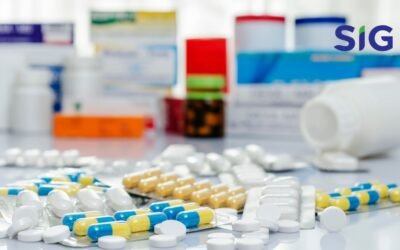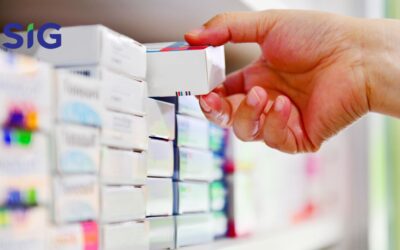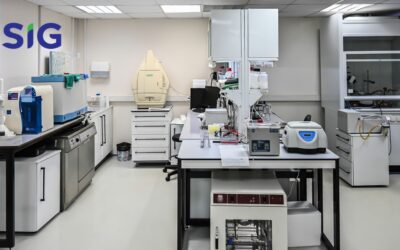Mycotoxins
– Allergen
– Amino Acids
– Antibiotics
– Antioxidants
– Contaminants
– Dioxins & PCBs
– Fatty Acid
– Fiber
– Food Colorants
– Food Preservatives
– GMO & Molecular Biology
– Heavy Metal
– Microbiology
– Mineral & Other Elements
– Mycotoxins
– Organic Acids
– Pesticides Residues
– Proximate Analysis
– Shelf Life Test
– Solvent Residues
– Sugar & Sweeteners
– Vitamins
Mycotoxins are toxic compounds that are naturally produced by certain types of moulds. Moulds that can produce mycotoxins grow on numerous foodstuffs such as cereals, dried fruits, nuts, and spices. Mould growth can occur either before harvest or after harvest, during storage, on/in the food itself often under warm, damp, and humid conditions. Most mycotoxins are chemically stable and survive food processing.
The effects of some food-borne mycotoxins are acute with symptoms of severe illness appearing quickly after consumption of food products contaminated with mycotoxins. Other mycotoxins occurring in food have been linked to long-term effects on health, including the induction of cancers and immune deficiency.
How SIG can help
SIG Laboratory can perform mycotoxins analysis on a wide variety of matrices, such as nuts, spices, cereals, milk, infant products, animal feed, and so on. So we can ascertain whether the mycotoxins contaminations in your product are still at the appropriate levels, as specified by national and international regulations. It makes your product meet food safety quality standards.
The types of mycotoxins that can be tested in the SIG laboratory are:
- Patulin
- Aflatoxin B1
- Aflatoxin B2
- Aflatoxin G1
- Aflatoxin G2
- Aflatoxin M1
- Fumonisins
- Ochratoxin A
- Zearalenone
- Nivalenol / Deoxynivalenol
Method of Analysis
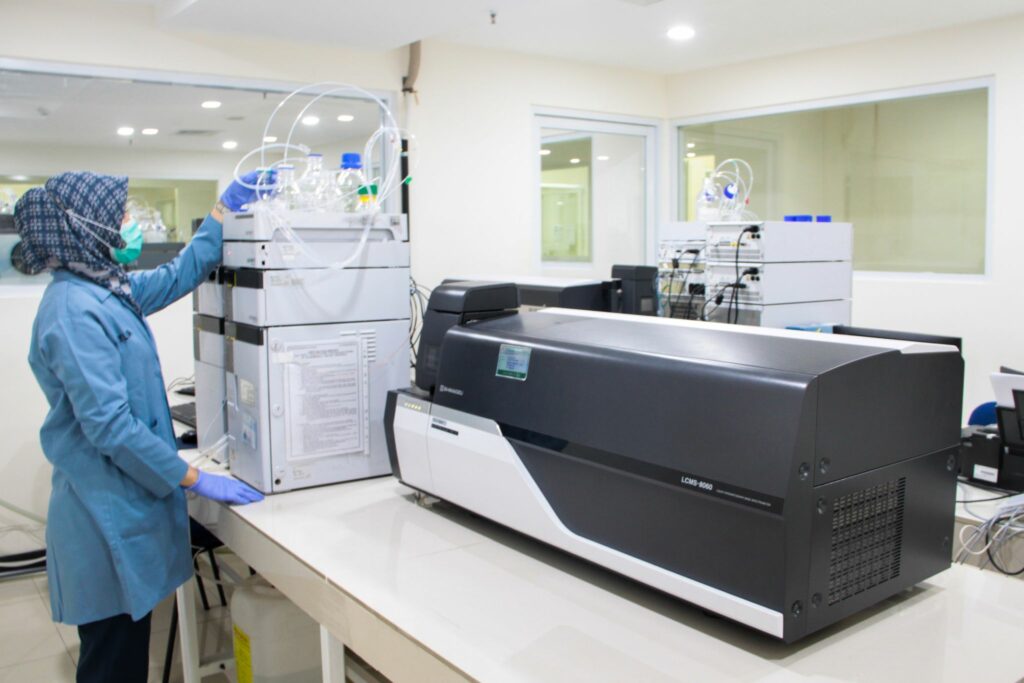
HPLC is the most likely technique to be used in mycotoxins analysis with many detectors such as UV-Vis, MS, and MSMS.
Library of Knowledge
Deteksi Campuran Bahan Kimia Obat (BKO) di Lab Uji Obat SIG
Keamanan dan kualitas obat merupakan hal yang sangat penting dalam bidang farmasi. Salah satu isu yang sering muncul adalah keberadaan bahan kimia obat (BKO) yang tidak terdaftar atau campuran bahan yang tidak sesuai dengan standar, maka dari itu perlu dilakukan...
Peran Lab Uji Farmasi Independen Dalam Dukungan Perkembangan Industri Farmasi
Industri farmasi telah berkembang pesat dari waktu ke waktu. Hal ini tidak lepas dari peran penting lab uji farmasi dalam menjamin keamanan obat-obatan yang beredar di pasaran. Tidak hanya itu lab independen juga bisa memberikan dukungan pengembangan produk pada...
Apa Itu Good Laboratory Practice (GLP) Pada Industri Farmasi
Good Laboratory Practice (GLP) merupakan sistem manajemen kualitas yang diterapkan di lab uji farmasi untuk menjamin bahwa hasil pengujian dan penelitian dapat dipercaya dan dapat dipertanggungjawabkan. Dalam industri farmasi, GLP sangat penting karena terkait...
SIG Laboratory
Graha SIG, Jl Rasamala No. 20, Taman Yasmin, Bogor, Jawa Barat 16113.
Phone. +62 251 7532 348
WhatsApp. +62 82 111 516 516
Email. marketing@siglaboratory.co.id
SIG Jakarta
Jl. Percetakan Negara No. 52 B RT 006 / RW 001, Rawasari, Cempaka Putih, Jakarta Pusat 10570.
Phone. +62 21 2147 9292
SIG Medan
Jl. Bunga Asoka, Ruko Komp. Asoka Raya Residance No. 1, Medan Selayang, Sumatera Utara 20133,
WhatsApp. +62 822 7207 9665
Email. salesmedan.sig@saraswanti.com
SIG Semarang
Jl. Kanfer Raya Blok R No. 4 Pedalangan, Kec. Banyumanik, Kota Semarang, Jawa Tengah 50268.
Phone. +62 24 7004 0541
WhatsApp. +62 812 9000 5165
Email. cs.sigsmg@saraswanti.com
SIG Yogyakarta
WhatsApp. +62 896 4856 9422
Email. arifin.sig@saraswanti.com
Operational Hours
Monday to Friday
08.00 - 17.00 WIB.

FOLLOW US

